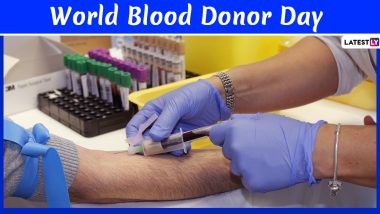World Blood Donor Day, observed every year on June 14, is a significant occasion to raise awareness about the importance of blood donation and to celebrate the selfless individuals who contribute to saving lives by donating blood. Established by the World Health Organization (WHO) in 2004, this day underscores the critical need for safe blood and blood products. As we commemorate this vital day, it’s essential to understand the criteria for donating blood, ensuring both donor and recipient safety.
The Importance of Blood Donation
Blood donation is a crucial act of kindness that can save countless lives. Blood transfusions are necessary for a variety of medical conditions, including severe anaemia, trauma, surgeries, cancer treatments, and complications during childbirth. Regular blood donations help maintain a stable supply, enabling healthcare providers to respond effectively to emergencies and routine medical needs.
Basic Criteria for Donating Blood
Before you roll up your sleeve, it’s important to know the eligibility requirements to donate blood. These criteria ensure that the donation process is safe for both the donor and the recipient.
Age and Weight Requirements:
- Age: Most countries require donors to be between 18 and 65 years old. Some regions allow 16- and 17-year-olds to donate with parental consent and older individuals to donate with medical clearance.
- Weight: Donors must weigh at least 50 kg (110 lbs) to ensure they can safely donate a standard unit of blood.
Health and Medical History:
- General Health: Donors should be in good health at the time of donation. They should feel well and not be suffering from a cold, flu, or any other acute illness.
- Medical Conditions: Certain medical conditions and histories may disqualify potential donors. For instance, individuals with heart disease, HIV/AIDS, hepatitis B or C, or those who have had certain cancers are generally not eligible to donate blood.
- Medications: Some medications may affect eligibility. It’s important to inform the blood donation centre about any medications you are taking.
Travel History:
- Malaria Risk: Donors who have travelled to regions where malaria is prevalent may be temporarily deferred from donating blood. The deferral period varies depending on the specific guidelines of the blood donation centre.
- Other Infectious Diseases: Travel to areas with outbreaks of infectious diseases, such as Zika or Ebola, may also result in temporary deferral.
Lifestyle Factors:
- Alcohol and Drug Use: Donors should not be under the influence of alcohol or recreational drugs at the time of donation. Certain high-risk behaviours, such as intravenous drug use, may result in a permanent deferral.
- Tattoo and Piercings: Recent tattoos and piercings (within the last 6-12 months) may lead to temporary deferral, depending on the guidelines of the donation center and whether sterile procedures were used.
Donation Frequency:
- Whole Blood: Donors can typically donate whole blood every 56 days (8 weeks).
- Platelets and Plasma: Platelet and plasma donations can often be done more frequently, such as every 7-14 days, up to a certain number of times per year.
Preparing for Blood Donation
If you meet the eligibility criteria, there are a few steps you can take to prepare for a successful donation:
- Hydrate: Drink plenty of fluids before and after your donation.
- Eat a Healthy Meal: Ensure you have a nutritious meal before donating. Avoid fatty foods, as they can affect the tests done on your blood.
- Rest Well: Get a good night’s sleep before your donation. World Blood Donor Day is a reminder of the vital role that blood donors play in healthcare. By understanding the criteria for donating blood, potential donors can ensure they are eligible and prepared to contribute to this lifesaving cause. Every donation counts and your contribution can make a significant difference in someone's life.
Celebrate this World Blood Donor Day by considering donating blood and encouraging others to do the same. Together, we can make a world of difference.
(This article is written for an informative purpose and should not be substituted for medical advice. Kindly consult your doctor before trying any tips.)
(The above story first appeared on LatestLY on Jun 15, 2024 05:44 PM IST. For more news and updates on politics, world, sports, entertainment and lifestyle, log on to our website latestly.com).













 Quickly
Quickly





















